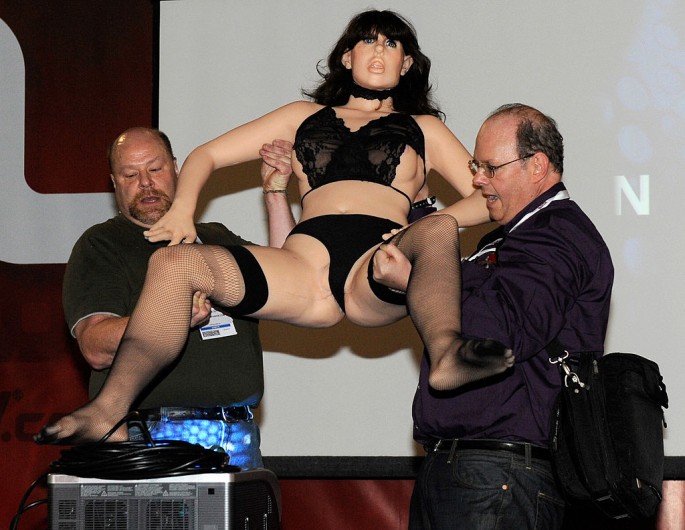Not all female robots are sex dolls, some are even academically inclined. The spectrum of female robots created over the past few years are the topic of a new book by author Julie Wosk.
In "My Fair Ladies: Female Robots, Androids, and Other Artificial Eves”, published by Rutgers University Press, Wosk provides a history of female robots from cinematic ones to those in art and literature. She points out that creating female robots is man’s way of creating their idea of the perfect women as exemplified by women robots in “The Stepford Wives” in which the characters are great in the kitchen and bedroom.
The book tackles industrial female robots, like those developed by Professor Hiroshi Ishiguro of Japan’s Osaka University and David Hanson of Hong Kong’s Hanson Robotics. Ishiguro’s robots has both commercial applications such as a receptionist and artistic, such as Geminoid F, which was part of the play “Sayonara” where she played a caretaker for a woman who was very ill and about to die, reported Robohub.
On July 17, Sunday, the 2015 film version of the play, directed by Koji Fukada, would be screened at Japan Society in Manhattan.
Ishiguro and Hanson’s robots look like women in their 20s with expressive faces and basic interactive speaking capabilities. In turn, sex robots similar those manufactured by Douglas Hines of True Companion, like Roxxxy, are more interactive and capable of electronic communications. As pliant creatures, it lacks needs or mind of its own which makes it unlike real women.
Robots for social use, specifically childcare and eldercare, are being developed by Professor Cynthia Breazeal at the Massachusetts Institute of Technology and Professor Andres Thomaz at Georgia Institute of Technology. The robots are gender neutral and socially aware, capable of empathy.
Because of belief by futurologists that sex with robots custom-built for human satisfaction would be the norm by 2050, the group Campaign Against Sex Robots seeks to further educate the public that robo-sex might be a bad idea, reported Inverse.



























